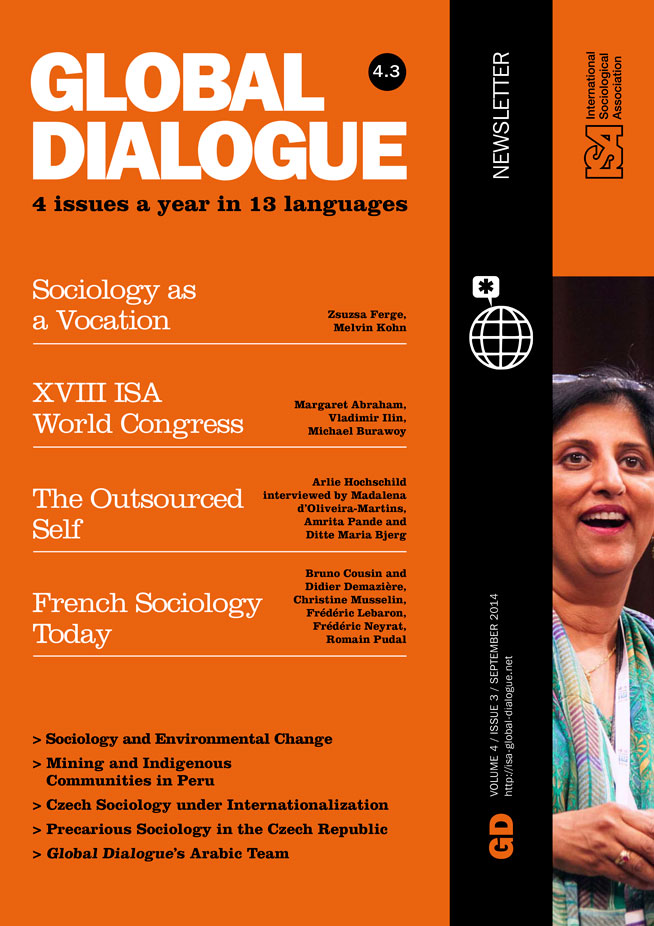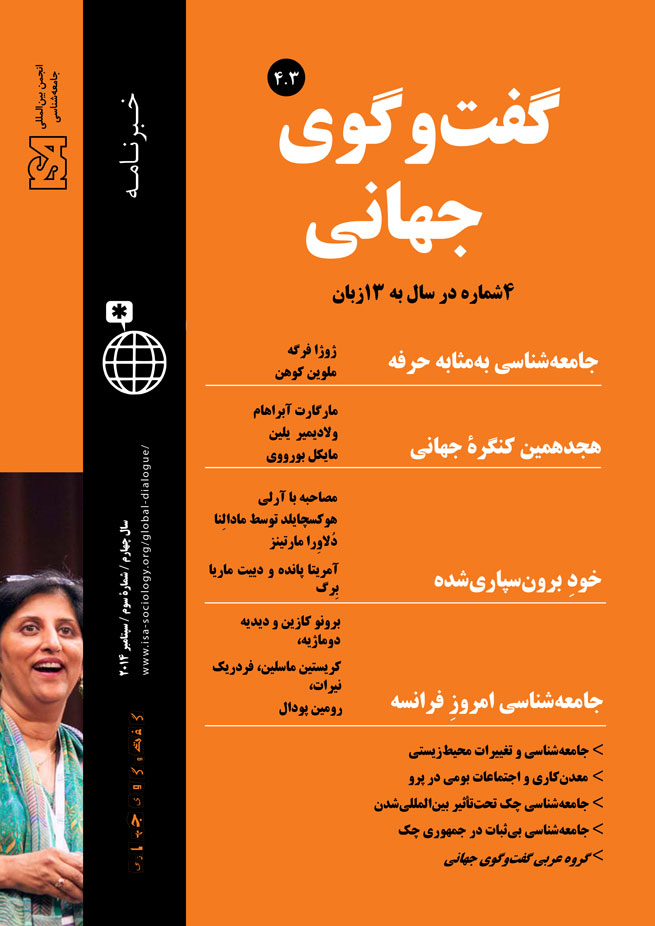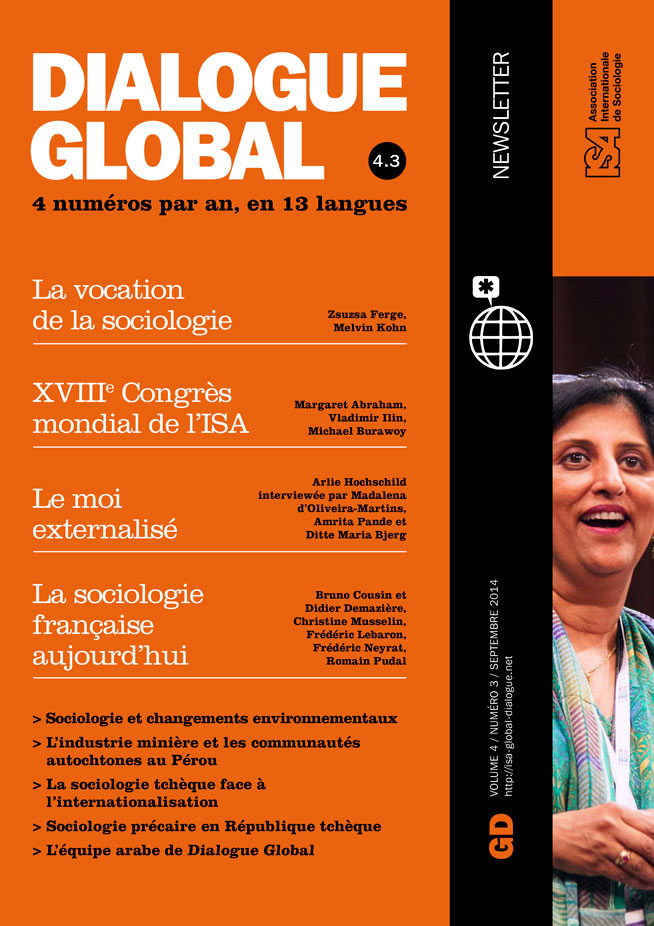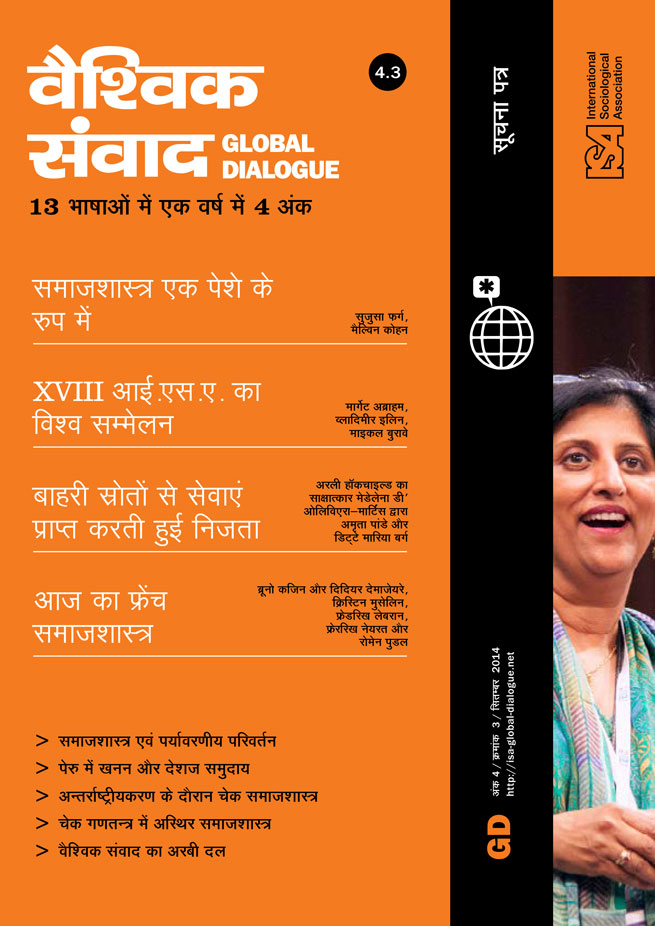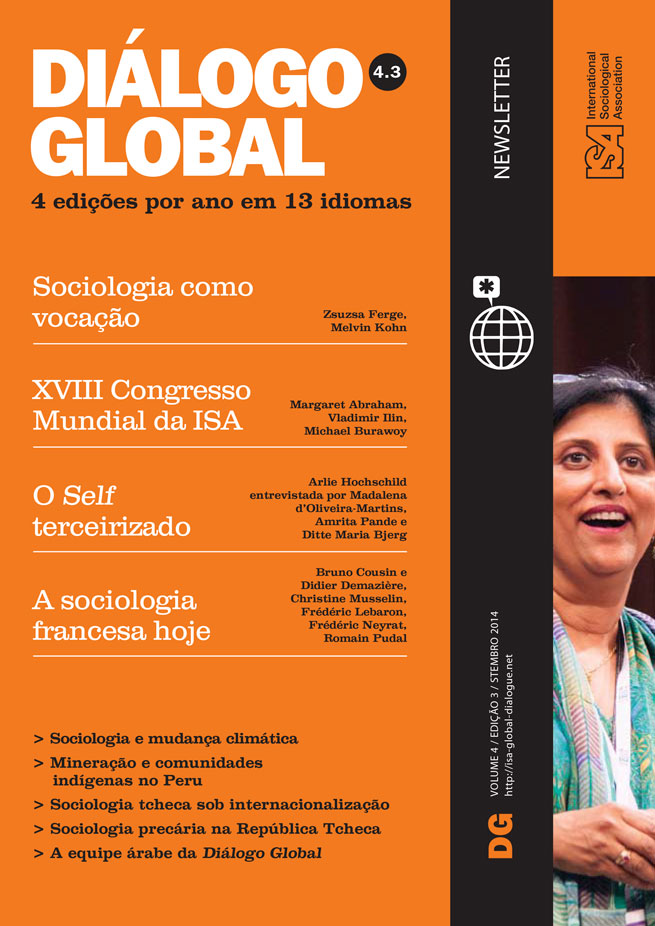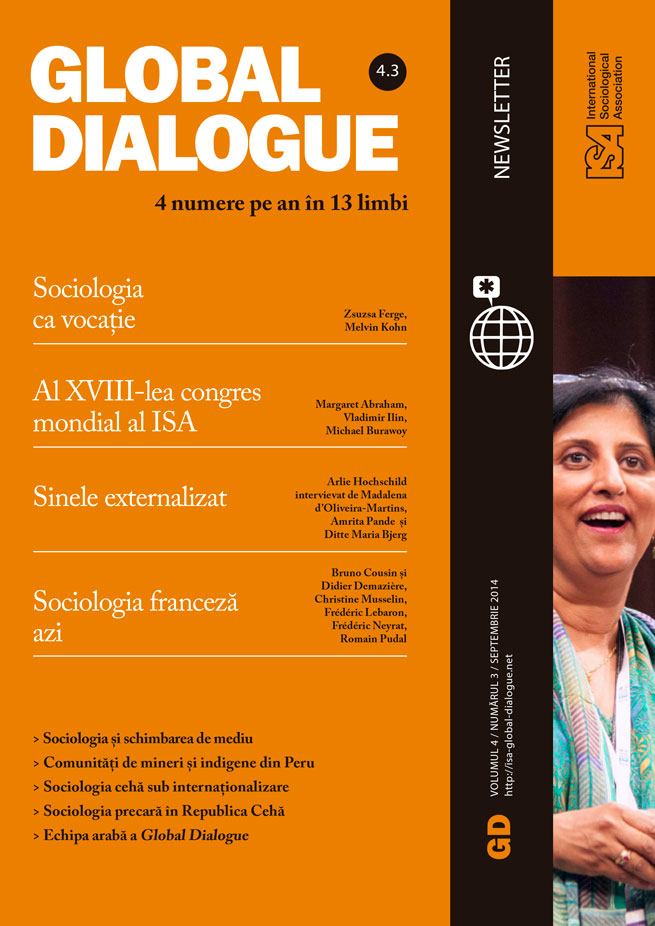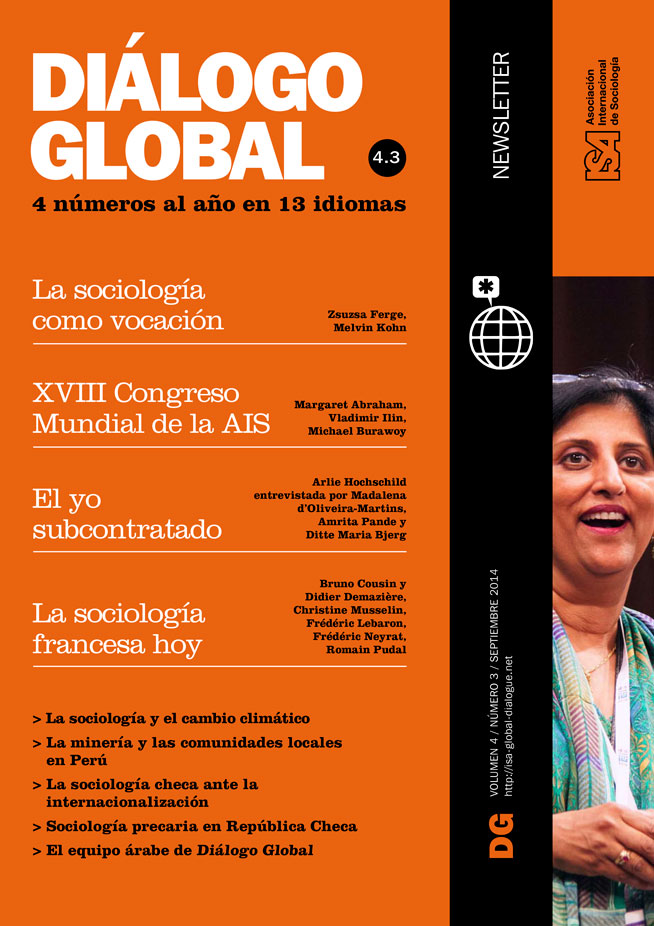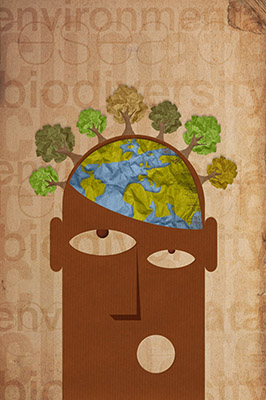Read more about Tackling the Environment
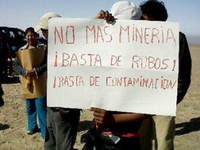
Copper, Water, and Land: Mining in Piedra Alta, Peru
by Sandra Portocarrero
September 08, 2014
Sociologists often complain that our potential contributions to environmental research and governance are ignored; that participation in key assessment and policy-making processes skews towards the natural sciences; and that, when we are consulted, it is usually to answer narrow questions about “social impacts” or “barriers to adoption.” Even more gallingly, we see non-social scientists – people like biologists and engineers – popularize frameworks for conceptualizing the social dimensions of environmental change lifted straight out of systems ecology and cybernetics.
How can we explain this apparent disregard for sociological expertise and insight? Disciplinary prejudice certainly explains some of this, but the inconvenient questions sociologists ask about power, inequality and democracy, I think, explain more. But how much of the explanation actually lies with us? With the knowledge we produce? The audiences we attempt to engage?
According to the International Social Sciences Council (ISSC), the answer is “quite a bit.” Every three years, the ISSC publishes a state-of-the-art report on critical challenges and trends in the social sciences. The World Social Science Report 2013, Changing Global Environments, summarizes the engagements of various social science disciplines with global environmental change, and articulates an agenda for ramping up social science contributions to the challenges presented by environmental change.[1]
Changing Global Environments includes contributions from discipline-based organizations such as the ISA and cross-disciplinary social research initiatives such as the International Human Dimensions of Environmental Change Program. Superficially, the number and breadth of activities mentioned throughout the report is impressive. But while global environmental change is deeply implicated in numerous political and economic crises, it has failed to capture mainstream social scientific attention.
Bibliometric analysis is used in Changing Global Environments to argue that sociologists have essentially gone missing in relation to environmental change research. A search for articles using the terms “climate change,” “climate policy,” “environmental change,” “sustainable development,” “biodiversity” etc. in the Thompson Reuters Web of ScienceTM database suggests that while an increasing number of articles refer to global environmental change, these remain a small percentage of total sociological research output.
I believe, however, that bibliometric analyses systematically underestimate the extent to which sociologists – as researchers, teachers and, importantly, as citizens – address environmental and sustainability issues. A brief look at the relevant ISA Research Committees and Groups reveals thriving communities of scholars contributing to all manner of projects, debates, policy processes and, for that matter, social movement organizations and community groups; sociologists contribute regularly to and take leading roles in multidisciplinary journals such as Global Environmental Change and Local Environment.
Further, many experiments in multidisciplinary, participatory and action research – particularly in the Global South – never make it past the filters of peer review and journal impact factors governing access to the so-called Web of ScienceTM – a problem ISA’s Research Committee on Environment and Society is hoping to address with the development of its new journal, Environmental Sociology, to be launched in early 2015.
Nevertheless, Changing Global Environments offers useful propositions for expanding the influence of the social sciences.[2] These “transformative cornerstones” – that is, key social scientific questions that must be answered in order to drive ethical and equitable transitions to sustainability – include:
1. Historical and contextual complexity: how are contemporary processes of global environmental change driven by specific political economies? How do they intersect with other processes such as migration and conflict? How do experiences of environmental change differ across space, time, class, gender, ethnicity, faith, etc.?
2. Consequences: how does global and environmental change impact people and communities? How are these impacts distributed? How do people cope with, adapt to, and innovate in response to environmental change?
3. Conditions and visions for change: what drives individual and collective change? What is the relationship between social change, policy intervention and democratic processes? How can social sciences contribute to consensus building about socially desirable change?
4. Interpretation and subjective sense-making: how do people make sense of environmental change and what prospects exist to enhance social learning? What are the assumptions and blind spots underlying people’s choices and behaviors? Conversely, what drives indifference, skepticism and resistance to transformative change?
5. Responsibilities: who should bear the cost of action to address environmental change? How can vulnerable populations be assisted both to contribute to, and benefit from, responses to environmental change?
6. Governance and decision-making: how are decisions made in the face of uncertainty? How can different framings of environmental processes and problems assist political agreement? What sorts of institutional arrangements facilitate dialogue between policy-makers, scientists and others?
The goal here is not to develop a modest applied agenda for policy-relevant social science, but to make the social sciences “bolder, better, bigger and different.” What is envisaged are social sciences capable of: reframing environmental change as a social process; influencing policy agendas and participating in real-world problem-solving; engaging social scientists in the challenges of global environmental change; and ensuring reflexivity in the practice of social science.[3]
This is not a vision lacking theoretical reflection and innovation, but one in which conceptual work responds to questions posed by transformation and through interaction with other disciplines and stakeholders. Many sociologists and colleagues across the social sciences are already doing exactly this – as Changing Global Environments and other examples demonstrate.[4] Karen O’Brien, for example, advocates the development of deeper perspectives on global environmental change, integrating Earth systems science with more sophisticated understandings of human agency as reflexive and non-linear.[5] John Urry examines the possibilities embodied in reflexive consumption behavior for stimulating innovation and reversing the intensification of material and energy use.[6] At the other end of the social scale, Alberto Martinelli proposes a model of global governance in which democratic states, supranational organizations, responsible corporations, NGOs and collective movements work with scientific and research communities to ensure democratic, theoretically and empirically robust decision-making.[7] Several authors look at the dynamics of collective learning in relation to environmental and social justice.[8]
These examples stand in stark contrast to what I call “self-referential sociology,” that is, theoretical work with no meaningful points of reference other than similar writings in social theory. Obtuse language and complex abstraction often belie what, on closer inspection, are simplistic and unfounded empirical assumptions. Moving beyond self-referential sociology requires us – collectively if not always individually – to “get our hands dirty.” It requires us to collaborate with others, to co-create knowledge and to contribute to positive social change. This is not simply a matter of ethics (as important as these are), but of validity. Multidisciplinarity, integration and collaboration are epistemically necessary if sociological research is to inform dynamic processes of social and environmental transformation.
Pathways to meaningful participation in social and environmental change or in related research programs are not always obvious. Some pathways present professional and personal risks. Some are inaccessible. Changing Global Environments highlights some pathways that have emerged for greater social scientific involvement, including, notably, Future Earth, a ten-year initiative developed through ISSC, the International Council for Science (ICSU), UNESCO, the Belmont Group, and others.[9] I strongly encourage anyone interested in global environmental change research subscribe to the Future Earth newsletter, comment on proposals and consider participating in – or indeed initiating – allied activities. As Changing Global Environments argues, realizing the potential of collaborative ventures like Future Earth requires social scientists to ask questions about power, inequality and democracy in sophisticated and constructive ways. I may not agree that sociologists have gone missing in global environmental change research, but I could not agree more that we must nonetheless develop sociologies that are bolder, better, bigger and, perhaps, even different.
[1] ISSC and UNESCO (2013) World Social Science Report 2013: Changing Global Environments. OECD Publishing and UNESCO Publishing, Paris. Available at http://www. oecd-ilibrary.org/social-issues-migration-health/worldsocial-science-report-2013_9789264203419-en
[2] These propositions were fi rst explored in: Hackmann, H. and St. Clair, A. (2012) Transformative Cornerstones of Social Science Research for Global Change. International Social Science Council, Paris. Available at http://www.igfagcr.org/images/pdf/issc_transformative_cornerstones_report.pdf
[3] See especially Moser, Hackmann and Caillods, Chapter 2, “Global environmental change changes everything: Key messages and recommendations.”
[4] See for example, Lockie, S., Sonnenfeld, D. and Fisher, D. (eds) (2014) The Routledge International Handbook of Social and Environmental Change. Routledge, London.
[5] Chapter 4, “What’s the problem? Putting global environmental change into perspective.”
[6] Chapter 53, “Are increasing greenhouse gas emissions inevitable?”
[7] Chapter 83, “Global governance and sustainable development.”
[8] For example, J. David Tàbara (Chapter 11, “A new vision of open knowledge systems for sustainability: Opportunities for social scientists”), Witchuda Srangiam (Chapter 76, “Social learning and climate change adaptation in Thailand), and Godwin Odok (Chapter 79, “The need for indigenous knowledge in adaptation to climate change in Nigeria”).
[9] http://www.futureearth.info/ and http://www.icsu.org/ future-earth/
Stewart Lockie, James Cook University, Australia and former President of ISA Research Committee on Environment and Society (RC24) <stewart.lockie@jcu.edu.au>
This issue is not available yet in this language.
Request to be notified when the issue is available in your language.
If you prefer, you can access previous issues available in your language:

